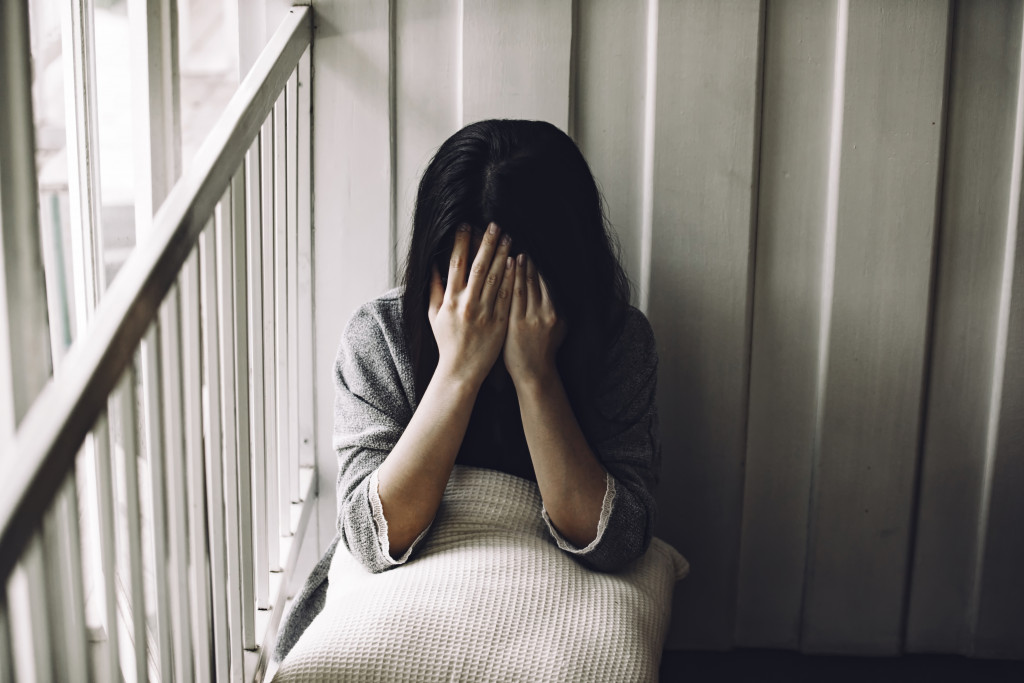When people talk about COVID-19, what comes to mind? You immediately think of it as a menace to your health and life. This means that you must take care of your body, boost your immune system, and avoid getting infected by the novel coronavirus altogether.
But a far more pressing concern is the impact of the pandemic on public mental health. The threat posed to your life and your family can cause so much stress and lead to psychological distress. Home isolation and restricted movements can result in anxiety and depression. Worse, the pandemic can lead to substance abuse and suicidal attempts.
Keep reading to know the five mental health issues to be wary of and learn practical ways to address them in the time of COVID-19.
1. Stress
Stress is a normal human reaction to stressors like changes and challenges in the environment. It happens to everyone that triggers physical and mental responses to challenging situations.
It’s easy to get stressed out during this pandemic brought about by the sudden changes. As you know, the pandemic protocols to curb the spread of the COVID-19 virus have led to restricted movements and home isolation. This sudden change can cause physical and psychological stress.
While stress is normal, stress management is essential. It’s good that leading health institutions such as the Centers for Disease Control and Prevention (CDC) provide recommendations on dealing with stress. Consider the following:
- Take care of your body (eat properly, drink plenty of water, get enough sleep and exercise).
- Limit your digital consumption (take breaks from the news and avoid social media).
- Allow some time to unwind and relax.
- Continue to make connections (whether with your family at home or your friends through online channels).
- Work with your community and other faith-based organizations.
2. Psychological Distress
While stress is one thing, distress is another. You must understand the difference between the two. If you leave your stress unattended for a while, it can worsen. And that is where stress turns into distress. Soon enough, you’ll have a low sense of well-being and feel almost on edge.
On a more specific note, below are signs and symptoms of psychological distress:
- Fatigue
- Moodiness
- Sadness
- Anger
- Fear
- Anxiety
All these can be apparent during the pandemic. In fact, a study sought to see the prevalence of psychological distress of people during the pandemic. Out of total respondents, 25 percent showed high psychological distress. Hence, there is a need for psychological intervention to deal with this mental health problem amid the pandemic.

3. Anxiety and Depression
The mental health issue has become a growing concern amid the pandemic. About 33 percent of Americans exhibit some symptoms of anxiety and depression. This figure is a significant jump from the rate before the pandemic. Mental health advocates attribute this problem to the threat of COVID-19, loss of loved ones, financial and economic issues, and future uncertainty.
It’s good that global institutions like the World Health Organization (WHO) have sought to fight off mental health issues. They are now committed to extending community-based mental health services to people in different localities. But on a personal level, you must find ways to manage your stress and address your psychological distress so they won’t escalate to anxiety and depression.
Below are some healthy ways to manage anxiety and depression:
- Have a sound and restful sleep
- Set a daily routine
- Be always mindful and grateful
- Establish a support group or system
- Connect virtually with friends and colleagues
- Have open lines of communication
- Seek professional help if you must
4. Substance Abuse
According to the American Psychological Association, there has been an increase in substance use during the pandemic. Around 13 percent of Americans have begun or increased the use of opioid and stimulant drugs. These people use drugs to get rid of stress, anxiety, and depression brought by the pandemic.
The problem, however, is that opioid includes the illegal drug heroin. This substance can be detrimental to one’s health. Also, even those synthetic drugs prescribed for pain relief are now being abused, which can be dangerous.
The best course of action is to stop using these substances and find other healthy alternatives. But if you’re already suffering from substance abuse of drugs such as meth, be sure to go check yourself into rehab clinics. They have psychologists and other clinicians who can significantly help you rise above this substance abuse.
5. Suicide
Another mental health issue that has increased during the pandemic is suicide. While 31 percent have anxiety and depression symptoms and 13 percent commit substance abuse, 11 percent of them entertain suicidal thoughts.
A lot of people are becoming hopeless because of the pandemic restrictions and future uncertainty. People who are already suffering from anxiety and depression are vulnerable to suicidal attempts.
If suicidal thoughts have already crossed your mind, it’s better to get help as soon as possible. Also, make sure to connect with your family and establish a support system. You need them now more than ever.
It’s important not to neglect your mental health during the COVID-19 pandemic. Aside from taking care of your physical health, be wary of stress, psychological distress, symptoms of anxiety and depression, and suicidal thoughts. Be sure to follow the tips discussed here to foster your mental well-being. Most importantly, seek professional help if you think you’re at your breaking point.
